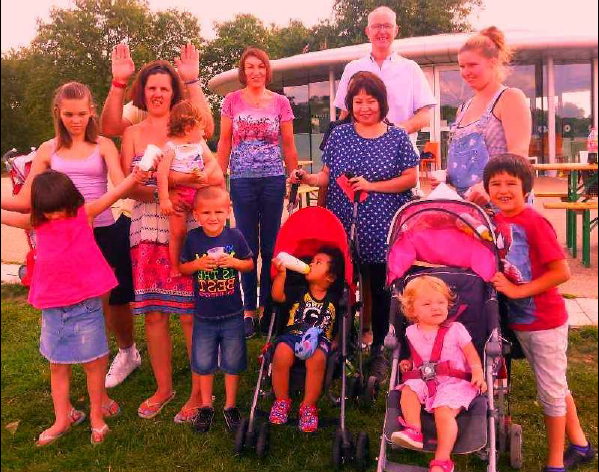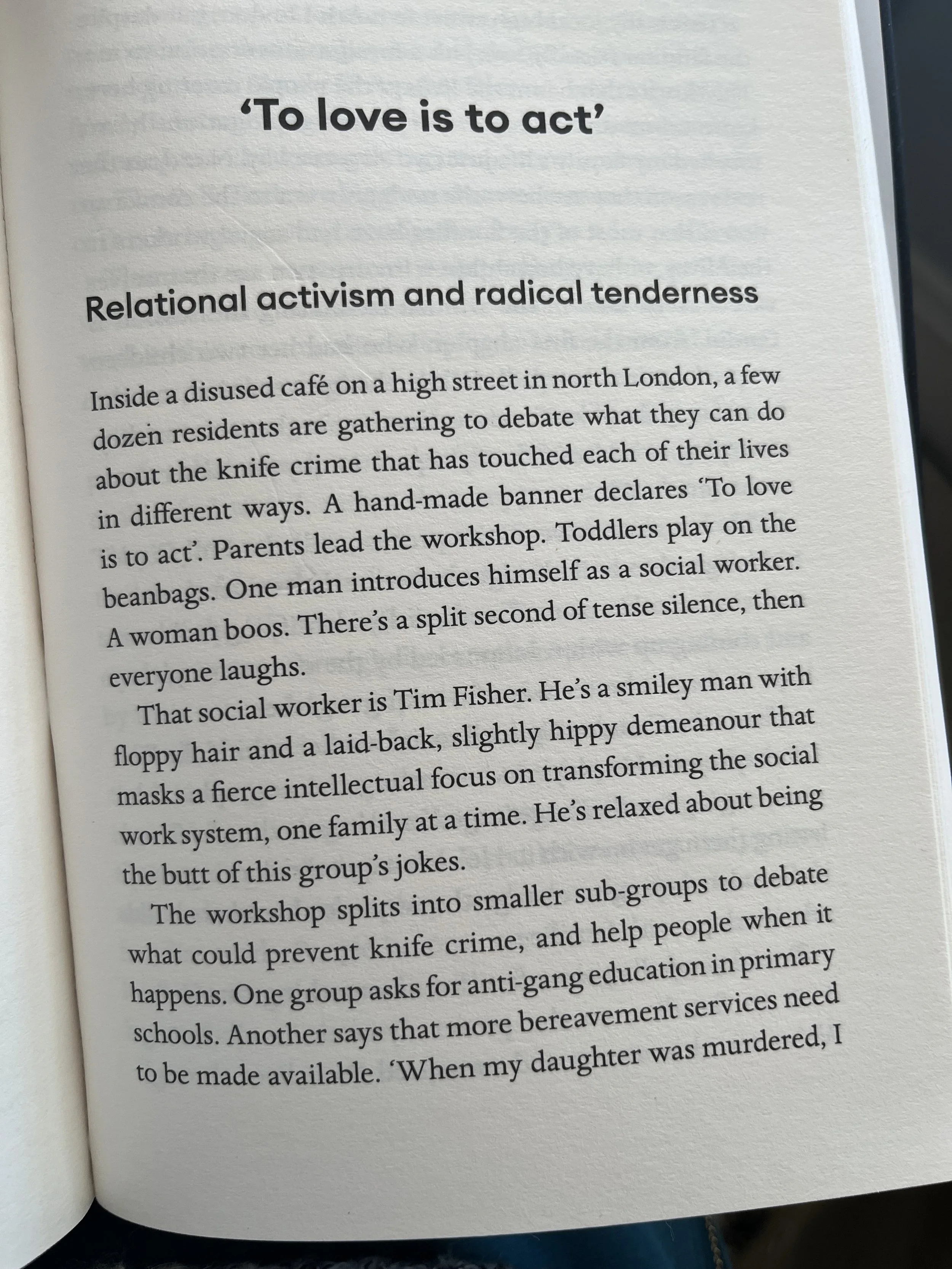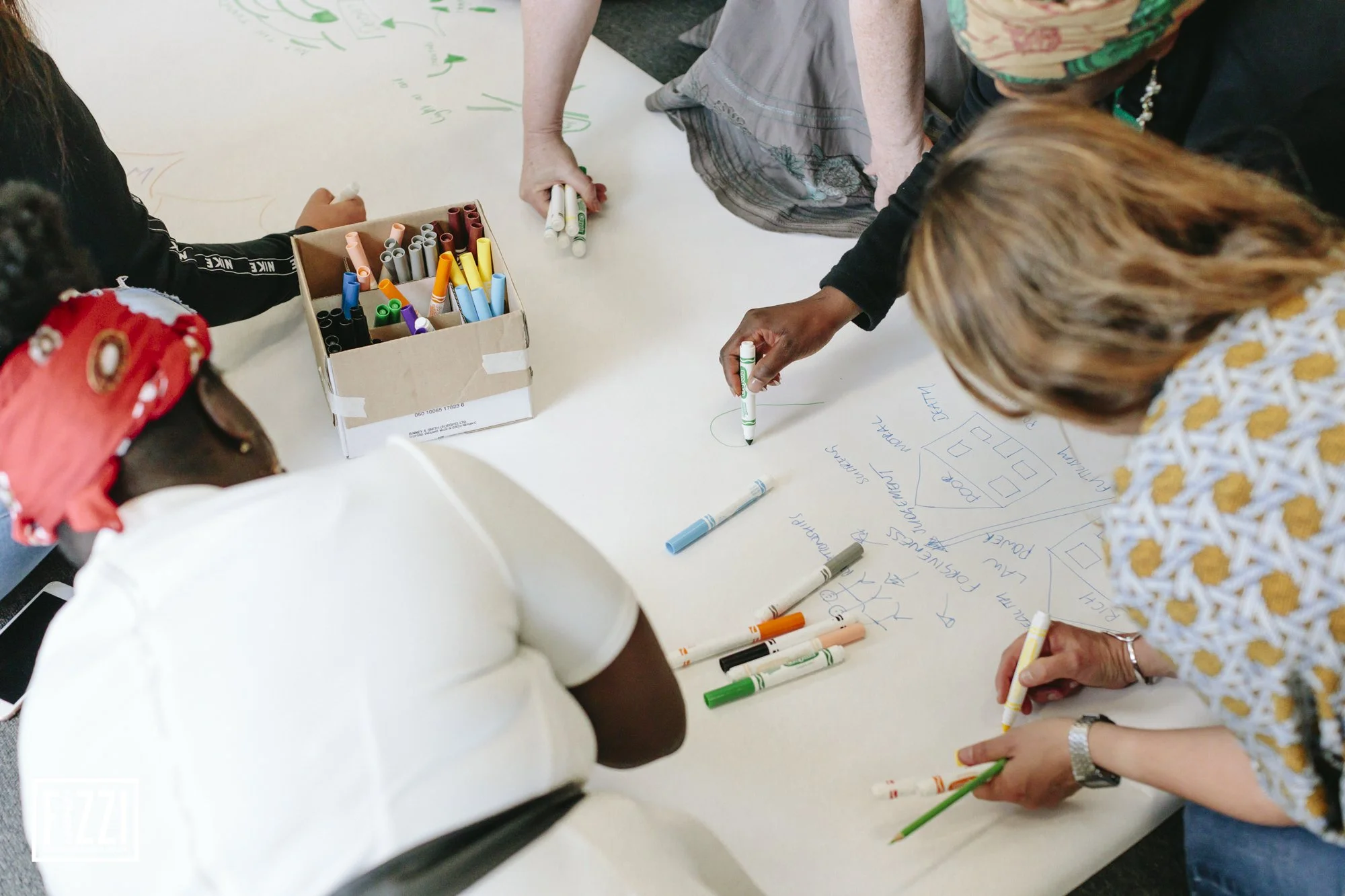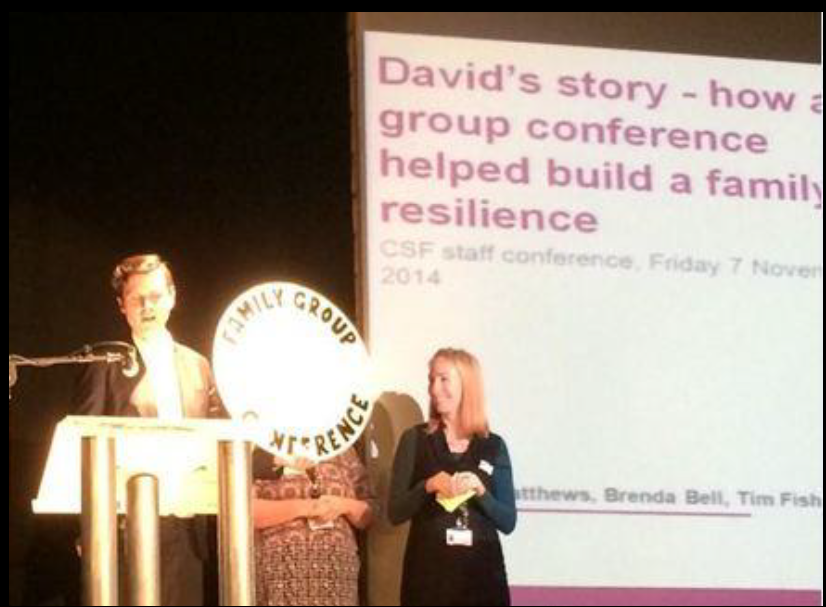ten years of co-design and connection in Camden
ten stand-out memories from
tim fisher
This is a collection of ten memories that span over ten years working in Camden. Each memory has its unique significance and offers an insight into Tim’s experiences as a social worker. From a dance with a client to holding public events and publishing articles, the memories capture the essence of relational activism and its impact on his work. Through these experiences, Tim has developed an understanding of the power of community and relationships in social work. These memories showcase how building a community network and approaching social work with empathy and compassion can transform lives.
In my first year working in Camden, I was passionate about speaking with families, which led me to start a coffee morning where I could listen to local parents. We circulated some information to gather a group, and ten people came to that first event. I was nervous, so I came prepared with a few exercises, one that has been much repeated over the years involves a ball of wool. We sat in a circle and passed a ball of wool, crisscrossing as we went. That first morning it felt good to be stood together, connected by wool and so much more, a network that would carry on for the next ten years. A couple of people from that meeting are still involved, including Kar-Man, who now coordinates the Family Advisory Board today. It’s been an excellent way to learn about Camden and the families there, and it remains my favourite meeting.
I remember the day that Alice came and danced in five St Pancras Square. She’d had a Family Group Conference, one of the first Camden had held for adults. Alice came to Camden from Ghana, made many connections there, and contributed much to her community. The FGC was special and a testament to Alice’s impact on her community, which circled back to support her in her time of need. They gave something back for all she had given them. It was also noteworthy due to the wonderful FGC Coordinator Azara Issifu. Through the fantastic Social Worker, Martin, we learned that Alice loved to dance, which made her feel connected to her community. Alice came to an event in the office. After we spoke about the magic of FGC, we put some music on, Jimmy Cliff’s ‘You Can Get It If You Really Want’. Alice started to dance, and Camden staff joined her in a beautiful moment I’ll never forget.
When I started training as a Social Worker, I read a book about Family Group Conferences by now-colleague and friend Peter Marsh and his co-author Gill Crow. I remember a vivid analogy where they compared the FGC process to a stage play, with the coordinator in the role as the play’s director. Many years later, an actress, activist and poet needed an FGC. Her Social Worker, Martin, found a way to hold the meeting on the stage of the Shaftesbury Theatre in London, where she had performed in a musical in the 1960s. Her community held space for her there, and her poetry received a standing ovation. I was struck by this poignant, powerful FGC perfectly reflecting and enacting the analogy from the first book I read on the topic.
I have always enjoyed the whole service meetings in Camden, an occasion where staff from many departments come together. At times this meeting can be a blank canvas for learning and discussion. A few years ago, young people and parents were invited to contribute to the meeting. They brought their passion and painted a picture from a different perspective. One stand-out moment was care-leaver Michael Clarke, who held the stage and spoke about his experiences. He received a standing ovation from Camden staff for his heartfelt spoken word about love and belonging and how this should be recognised in social care.
One highlight of my career was bringing our use of the term ‘relational activism' to an international audience in an article I wrote in collaboration with Becca Dove. The article began during a session of thinking and talking through the flow of our conversation about relational work. I was thinking about how those community relationships felt and our experiences of activism and organising. Two words seemed to come together, and it felt right to join them to make ‘relational activism’. We researched and noted that academics writing in the fields of feminism and environmental activism had used the words together before. We started on our own journey with it. It began to capture the image of what we were doing with parents and young people, sharing stories and working in empathy. Watching the term connect internationally was very special, especially getting to publish our manifesto on ‘relational activism’ in the Stanford Social Innovation Review in America.
We started holding events that brought together everybody involved in our work and people who were aligned with our vision of the future for social work and human services—a future with relationships at its heart. We settled on Valentine's Day as a natural date to hold the event and named it ‘Love Shows Up’. The purpose of the event was to speak about love in public services. Over time, it’s shifted our concept of love as no longer exclusive to romantic or familial relationships. Love and compassion can be justice seeking tools for public servants that want the best for people. One particular moment that stands out from that first event was when my friend and collaborator Seth Oliver brought a banner with our slogan, ‘To Love is To Act,’ which became omnipresent at meetings, conferences and gatherings thereafter.
Another event I was involved in took over a shop on the high street in Kentish Town for a day to discuss youth vulnerability to violence and community response. Family members facilitated this event, and I realised how possible it was to have necessary conversations when you get a full circle of people together. One humorous memory stands out, immortalised in Polly Curtis’s book ‘Behind Closed Doors’. As the microphone was passed around the room, people introduced themselves. When the mic came to me, I introduced myself as a Social Worker to a chorus of pantomime ‘boos’’ from the room. I thought it was an interesting opportunity to speak a bit about social work and address the stigma, showing a more human side to social work. In a way, it showed me how accountable I was to the community, I was a Social Worker speaking directly to them, trying my best not to be a pantomime villain.
Another fond memory is when we went up to Birmingham. In the past, we facilitated many meetings with decision-makers. Bringing together people with lived experience, managers in human services and occasionally politicians, although so far only in London. We got the opportunity to go to a national conference, so we travelled to Birmingham with a group from the Camden community. It was lovely to be on a field trip. For some, it was their first time north of London. While there, we met with people from other communities in England to talk about parent voice and make change nationally. It was special to share so many firsts with colleagues.
Camden Conversations, a peer-led research project where professionals and parents had frank and honest conversations about social work, found that parents wanted a more active role in Camden. They felt they could make a positive change in the system. Peer Parent Advocacy emerged from this idea, where parents with experience of Child Protection helping guide parents new to the system. At the beginning of this year Cardiff University released the findings of research done in collaboration with the Camden Community. We recently had a feedback session in one of the committee rooms, there were fifteen attendees, a mix of parents and advocates. Their response was heartening, that Peer Parent Advocacy helped changes lives. The partnerships helped both parties and get on in their lives.
In the last year I’ve been reading a lot of books on Co-Design, these texts highlight the importance of collaboration above all else. Collaboration across different life experiences, positions and privilege to design services. It made me think about all the work we’ve done over the last ten years, and viewing those achievements through that lens. The 2500 Family Group Conferences we’ve done thanks to our team of wonderful coordinators, contribution to the reduction of children in care by 50% and recent increases in Peer Parental Advocates supporting and drawing on their lived experiences. All of these examples of good work help form set a beliefs about the right of community to be involved in the ground-level democracy in Camden. To be part of who makes the decisions about how services are run. In this are the hopes of new potential collaborations and shared futures.











